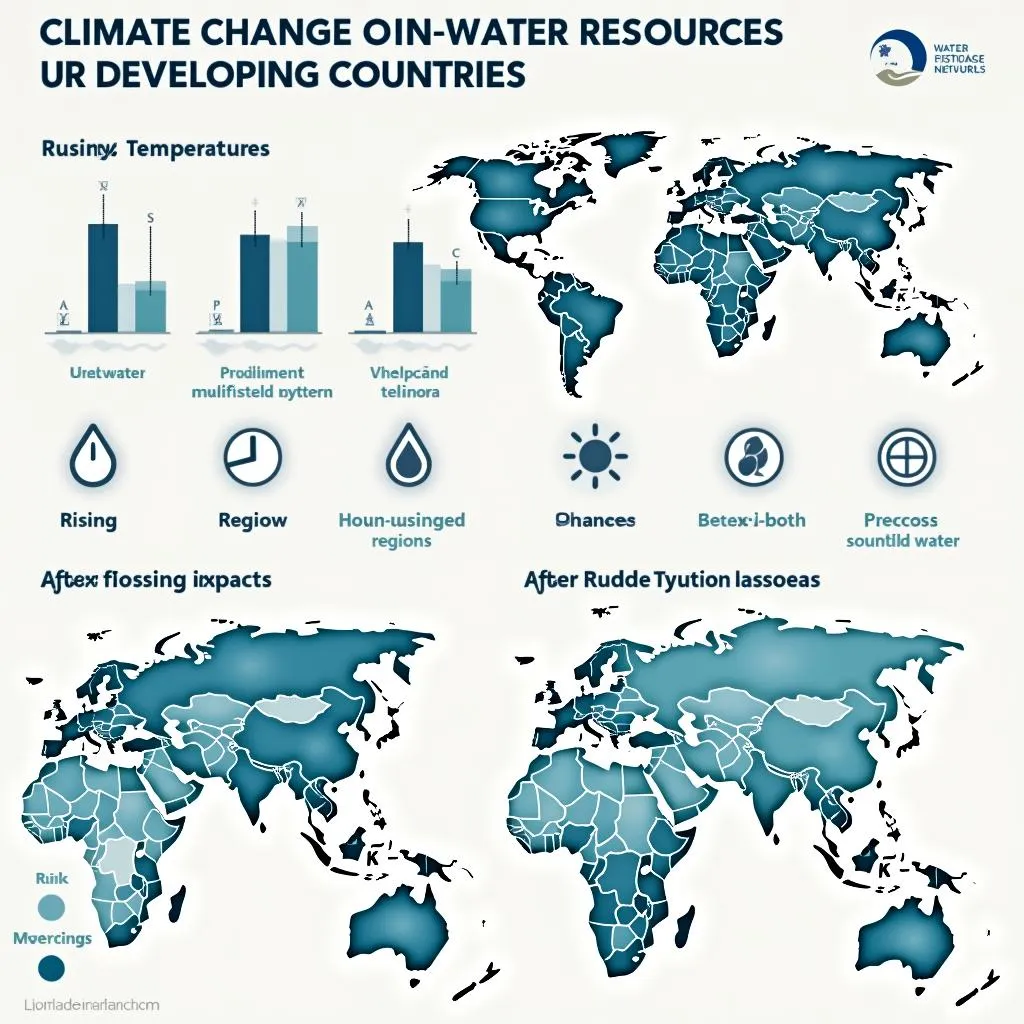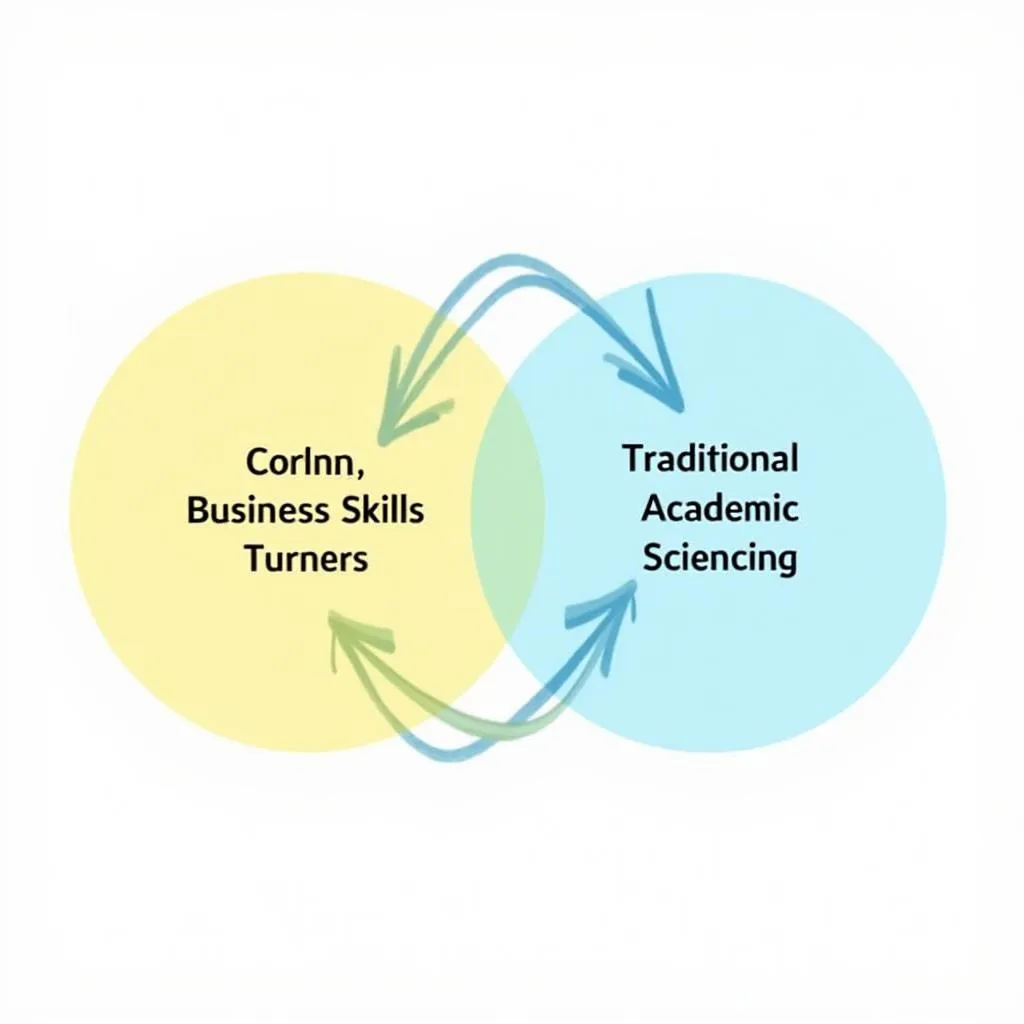Climate change and its effects on water scarcity in developing nations have become increasingly prevalent topics in IELTS Writing Task 2 essays. This theme has appeared multiple times in recent years and is likely to continue being a popular subject due to its global significance. Based on our analysis of past IELTS exams, we’ve identified a relevant question that closely aligns with this topic:
Nội dung bài viết
Some people believe that the most effective way to tackle water scarcity in developing countries is through international aid. Others argue that local governments should be responsible for solving this issue. Discuss both views and give your own opinion.
This question touches on the critical issue of climate change effects on food and water security while focusing on potential solutions. Let’s analyze the question and provide sample essays for different band scores.
Question Analysis
This question requires you to:
- Discuss the view that international aid is the most effective solution
- Discuss the view that local governments should be responsible
- Provide your own opinion on the issue
It’s crucial to address all parts of the question and structure your essay accordingly.
Sample Essay 1 (Band 8-9)
International water scarcity is a pressing issue that affects millions of people, particularly in developing nations. While some argue that international aid is the most effective solution, others believe that local governments should take primary responsibility. In my opinion, a combination of both approaches is necessary to address this complex problem effectively.
Those who advocate for international aid argue that developed countries have the resources and expertise to implement large-scale water management projects. These projects could include building desalination plants, improving irrigation systems, and introducing water-efficient technologies. Moreover, international organizations can provide funding and technical assistance that may be beyond the means of developing countries. For example, the World Bank has funded numerous water supply and sanitation projects in Africa, significantly improving access to clean water in rural areas.
On the other hand, proponents of local government responsibility contend that sustainable solutions must be rooted in local knowledge and governance. Local authorities are better positioned to understand the specific challenges and cultural contexts of their regions. They can implement tailored policies, such as water conservation education programs or locally appropriate infrastructure projects. Additionally, relying solely on external aid may create dependency and undermine long-term capacity building within the country.
In my view, the most effective approach to tackling water scarcity in developing nations is a collaborative effort between international aid organizations and local governments. International aid can provide the necessary financial resources and technical expertise, while local governments can ensure that solutions are culturally appropriate and sustainable in the long term. This partnership can lead to more comprehensive and effective water management strategies.
 Climate change exacerbating water scarcity in developing nations
Climate change exacerbating water scarcity in developing nations
For instance, a successful model of this collaboration can be seen in the impact of climate change on education systems in vulnerable regions, where international organizations work with local schools to implement water-saving measures and educate students about conservation. This approach not only addresses immediate water needs but also builds long-term resilience.
In conclusion, while international aid and local government action each have their merits, a combined approach is likely to yield the best results in addressing water scarcity in developing countries. By leveraging the strengths of both international resources and local expertise, we can create more effective and sustainable solutions to this critical global issue.
(Word count: 395)
Essay Analysis (Band 8-9)
This essay demonstrates excellence in several key areas:
-
Task Achievement: The essay fully addresses all parts of the question, discussing both views and clearly stating the writer’s opinion.
-
Coherence and Cohesion: The essay is well-organized with clear paragraphing and effective use of linking words.
-
Lexical Resource: The writer uses a wide range of vocabulary accurately and appropriately, including topic-specific terms.
-
Grammatical Range and Accuracy: The essay showcases a variety of complex sentence structures with few errors.
-
Development of Ideas: Each point is well-developed with relevant examples and explanations.
Sample Essay 2 (Band 6-7)
Water scarcity is a big problem in many developing countries. Some people think that international aid is the best way to solve this issue, while others believe local governments should be responsible. I will discuss both views and give my opinion.
Those who support international aid say that rich countries can help with money and technology. They can build big water projects like dams and water treatment plants. Also, international organizations have experience in solving water problems in different parts of the world. This knowledge can be very useful for developing countries.
On the other hand, some people think local governments should take care of water scarcity. They say that local officials know their country’s problems better. They can make rules that fit their specific situation and culture. Local governments can also educate people about saving water and using it wisely.
In my opinion, both international aid and local government action are important. International help can provide money and expert knowledge, while local governments can make sure the solutions work well in their country. Working together, they can find better ways to solve water scarcity.
 International aid and local government collaboration for water scarcity solutions
International aid and local government collaboration for water scarcity solutions
For example, an international organization could help design a new irrigation system, and the local government could teach farmers how to use it properly. This kind of teamwork can lead to long-lasting solutions.
In conclusion, I believe that combining international aid with local government efforts is the best way to tackle water scarcity in developing countries. By using the strengths of both approaches, we can find more effective solutions to this serious problem.
(Word count: 294)
Essay Analysis (Band 6-7)
This essay demonstrates competence in several areas but has room for improvement:
-
Task Achievement: The essay addresses all parts of the question, but the discussion could be more detailed.
-
Coherence and Cohesion: The essay has a clear structure, but the use of cohesive devices is sometimes repetitive.
-
Lexical Resource: The vocabulary is appropriate but limited in range and sophistication.
-
Grammatical Range and Accuracy: The essay uses a mix of simple and complex sentences with some errors that do not impede communication.
-
Development of Ideas: Ideas are relevant but could be further expanded and supported with more specific examples.
Key Vocabulary
-
Water scarcity (noun) – /ˈwɔːtə ˈskeəsɪti/ – A lack of sufficient available water resources to meet the demands of water usage within a region.
-
International aid (noun phrase) – /ˌɪntəˈnæʃənl eɪd/ – Assistance provided by one country to another, typically in the form of financial support or resources.
-
Desalination (noun) – /diːˌsælɪˈneɪʃn/ – The process of removing salt from seawater to make it suitable for human consumption or irrigation.
-
Irrigation (noun) – /ˌɪrɪˈɡeɪʃn/ – The supply of water to land or crops to help growth, typically by artificial means.
-
Sustainability (noun) – /səˌsteɪnəˈbɪləti/ – The ability to maintain or support a process continuously over time.
-
Conservation (noun) – /ˌkɒnsəˈveɪʃn/ – The act of protecting and preserving natural resources, such as water.
-
Resilience (noun) – /rɪˈzɪliəns/ – The capacity to recover quickly from difficulties or adapt to change.
-
Infrastructure (noun) – /ˈɪnfrəstrʌktʃə/ – The basic physical and organizational structures and facilities needed for the operation of a society or enterprise.
-
Collaboration (noun) – /kəˌlæbəˈreɪʃn/ – The action of working with someone to produce or create something.
-
Capacity building (noun phrase) – /kəˈpæsəti ˈbɪldɪŋ/ – The process of developing and strengthening the skills, abilities, and resources that organizations and communities need to survive and thrive.
In conclusion, the issue of water scarcity in developing nations, exacerbated by climate change, is a complex topic that requires a multifaceted approach. As demonstrated in our sample essays, effective solutions often involve collaboration between international aid organizations and local governments. To further improve your IELTS Writing skills, we encourage you to practice writing your own essay on this topic and share it in the comments section below. This active practice will help you refine your writing technique and prepare for similar questions in the actual IELTS exam.
For additional practice, consider exploring related topics such as how climate change affects global economic stability or how does climate change impact global food security. These interconnected issues are likely to appear in future IELTS Writing Task 2 questions, so familiarizing yourself with them will be beneficial for your exam preparation.


